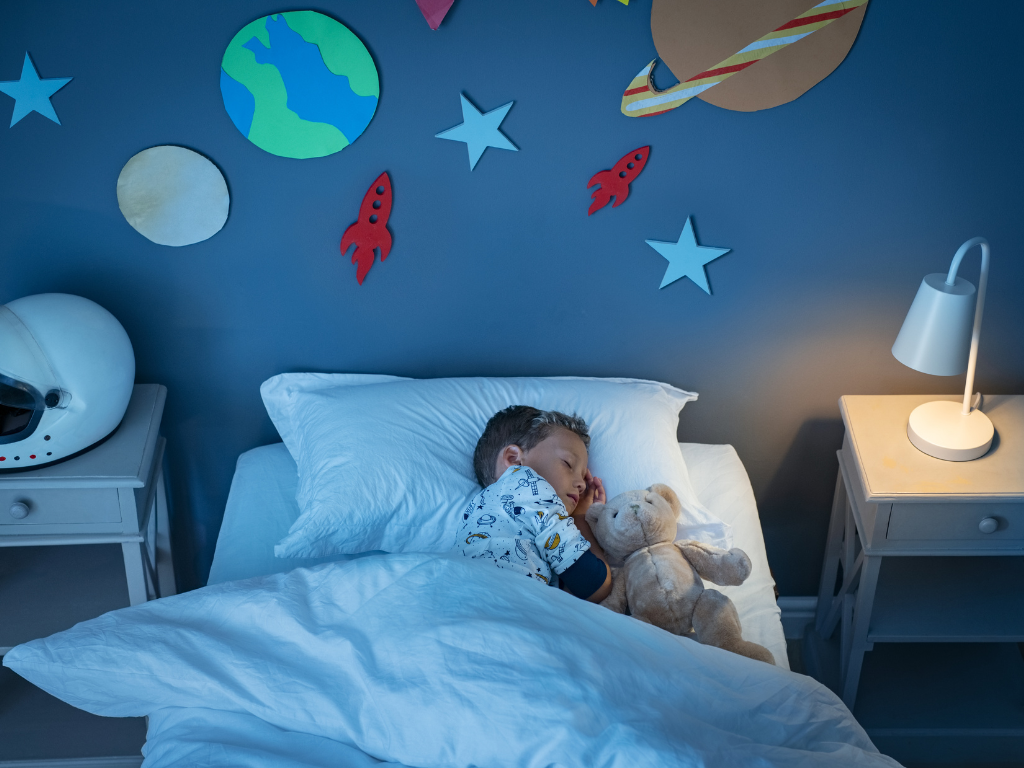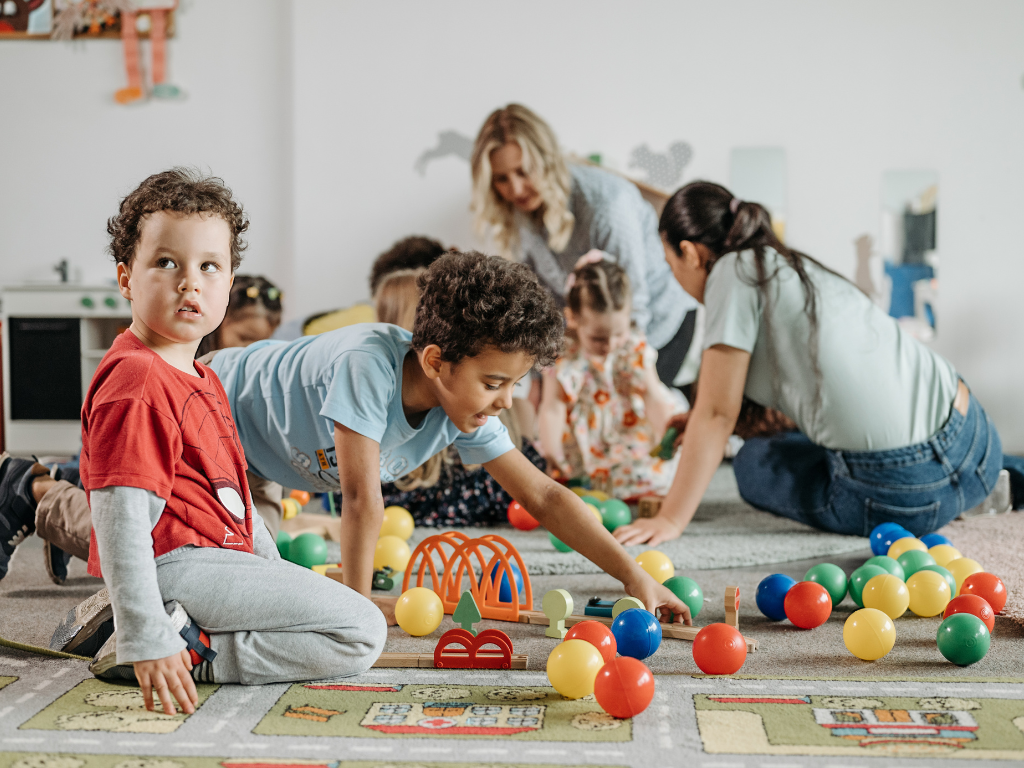Parenting young children is a beautiful, exhausting, and ever-evolving journey. Amid the chaos of diapers, snack demands, and endless questions, one of the greatest gifts you can offer your child is structure. For children under six, routines are not just helpful—they are essential. A predictable rhythm provides children with a sense of security, helps them understand expectations, and supports healthy physical, emotional, and cognitive development.
In this post, we’ll explore how to build and maintain effective routines for three critical parts of a young child’s day: sleep, meals, and play. Each of these activities plays a key role in your child’s well-being and contributes to their long-term growth.
“Consistency Today, Confidence Tomorrow.”
Why Routines Matter in Early Childhood
Children under six are in a rapid phase of development. Their brains are forming neural connections at an astonishing rate, and they are learning how to interact with the world around them. With so much stimulation, routines offer comfort, predictability, and a sense of control. They reduce power struggles, foster independence, and help kids learn time concepts, like “after lunch, we nap” or “after bath, it’s bedtime.”
A consistent daily routine can also help reduce anxiety and behavioral issues. Kids thrive when they know what’s coming next. Even if the day doesn’t go perfectly, having anchors in place (like regular meals or a predictable bedtime) keeps them grounded.
1. Sleep Routines: The Foundation of a Happy Day
Sleep is arguably the most important part of a young child’s routine. Children under six need anywhere from 10 to 14 hours of sleep per day, including naps. However, getting them to settle down isn’t always easy. That’s where a sleep routine becomes invaluable.
Tips to Build a Healthy Sleep Routine:
- Set a consistent bedtime and wake-up time—even on weekends.
- Create a calming pre-sleep ritual: This could include a bath, brushing teeth, putting on pajamas, reading a story, and a lullaby. Doing the same sequence every night signals the brain that it’s time to wind down.
- Keep the sleep environment sleep-friendly: A cool, dark room with minimal noise is ideal. Use white noise machines if needed.
- Limit screen time before bed: Blue light can interfere with melatonin production, making it harder for children to fall asleep.
- Stay calm and patient: Toddlers may resist bedtime. Don’t get into power struggles; stay consistent and loving.
Over time, your child will begin to associate bedtime with safety and comfort, making transitions smoother.

2. Meal Routines: More Than Just Nutrition
Meal routines are not just about feeding your child; they also teach healthy eating habits, manners, and offer an important moment for connection.
Young children thrive on routine eating times, as their small stomachs and high activity levels mean they need fuel every few hours. A well-structured meal routine can prevent hanger-related meltdowns and encourage better food choices.
Creating Effective Meal Routines:
- Have set times for meals and snacks. This helps regulate hunger and teaches kids to listen to their bodies.
- Eat together as a family when possible. Family meals promote better communication and model good table manners.
- Keep meals screen-free. Use mealtimes to talk and bond.
- Offer a variety of healthy options, but don’t pressure. It’s normal for toddlers to be picky eaters. Consistency and exposure are key.
- Let your child help. Involve them in age-appropriate tasks like washing vegetables or setting the table—they’ll be more excited to eat something they helped prepare.
- Avoid using food as a reward or punishment. This can create an unhealthy relationship with food.
If your child knows that breakfast is at 8:00, snack at 10:30, lunch at noon, etc., their body and behavior will adjust to that rhythm. And yes, that means fewer tantrums.

3. Play Routines: Building Brains and Bonds
Play is how children under six learn best. It’s not just entertainment—it’s their work. Structured and unstructured play both have important roles in child development. While spontaneous play is crucial, building a routine around playtime ensures kids have ample opportunity to move, explore, and grow.
Structuring Play Routines:
- Balance independent play and guided play. Children need time to play alone to build creativity and self-confidence, as well as time with adults for bonding and learning.
- Include both indoor and outdoor play. Physical activity is essential. Outdoor time helps burn energy and supports motor development.
- Use toys and tools wisely. Rotate toys to keep interest fresh. Too many options can be overwhelming.
- Establish tech-free times. While some screen time may be fine, children under six benefit most from hands-on, real-world play.
- Create rituals around playtime: For example, after snack, it’s story time and then outdoor play. The predictability helps kids transition between activities more easily.
- Let your child lead sometimes. Following their interests during play fosters autonomy and shows you value their choices.
Playtime routines also teach important social skills like sharing, waiting for turns, and resolving conflicts.

Making It All Work Together
So how do you combine sleep, meals, and play into a workable routine without feeling like you’re running a military camp? The key is flexible consistency.
Here’s a sample routine for a 4-year-old:
| Time | Activity |
| 7:00 AM | Wake up, brush teeth, dress |
| 7:30 AM | Breakfast |
| 8:00–9:00 AM | Free play / outdoor play |
| 9:00–9:30 AM | Snack |
| 9:30–11:00 AM | Learning activities / crafts |
| 11:00–12:00 PM | Outdoor play or outing |
| 12:00 PM | Lunch |
| 12:30–2:30 PM | Nap / quiet time |
| 2:30 PM | Snack |
| 3:00–4:00 PM | Indoor play / story time |
| 4:00–5:00 PM | Free play |
| 5:30 PM | Dinner |
| 6:00–7:00 PM | Wind-down time (bath, books) |
| 7:30 PM | Bedtime |
This is just a guideline, of course. Every child and family is different, and routines will evolve with age, seasons, and life changes. What’s important is keeping the core elements predictable and age-appropriate.
Final Thoughts: Be Kind to Yourself
No routine will be perfect. There will be skipped naps, dinner battles, late bedtimes, and chaotic days. That’s okay. What matters most is the overall consistency and your presence through it all.
Routines are powerful, not because they control children, but because they empower them. They teach time awareness, self-care habits, and emotional regulation—tools that will serve your child for a lifetime.
So whether you’re just starting or looking to fine-tune your child’s daily rhythm, remember: the small steps you take today are building a strong, stable foundation for their tomorrow.

